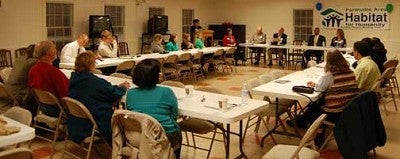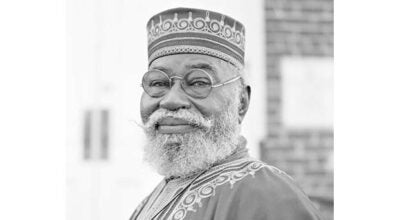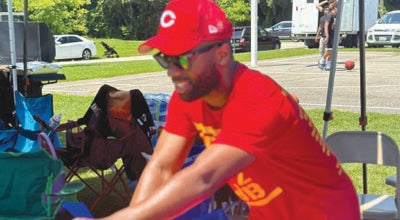Housing Problems
Published 4:23 pm Tuesday, October 9, 2012
FARMVILLE – In Southside Virginia there are families that pay a disproportionate amount of their income for housing, individuals who have no housing at all and communities that lack wealth equity to help further development and help their children break negative cycles.
Local, state and federal experts came together last week to discuss the complex problem of housing in Southside Virginia. While the problem is daunting and the issues complex, there was hope for a solution as a diversity of agencies and citizens become involved and continue to cooperate.
In honor of World Habitat Day, Farmville Area Habitat for Humanity hosted a forum on October 1, entitled: “Many Homes, One Community: The State of Housing in Southside Virginia.” The panel of speakers included local, state and federal experts on housing conditions and solutions in Southside Virginia. The panel was attended by local college students and other community members.
Although local elected officials were contacted, organizers said, and some expressed their regrets, none attended.
Bob Adams, President of HDAdvisors, a consulting firm, is a technical advisor for Virginia Community Capital, which assists in developing community projects, provides staff leadership for Housing Virginia and has worked with issues of affordable housing for over 25 years. He pointed out that even though homes have become less expensive in Virginia, they are not more accessible to many households. He argued that the past few years have been difficult economically for many families and have led to an increase in credit problems, making it difficult for many to purchase homes.
Instead, they must rent. When inflation is taken into account, the median household income in Virginia has remained basically static from 2000-2010 according to the US Census. However, Adams reported that rent prices have been increasing in Virginia.
Therefore, Adams argued that more families are in a worse position economically because they are forced to pay rising rent prices with an income that is not increasing.
He pointed out that there are over 1,000 families in Prince Edward County that are cost burdened. That is, they must pay more than a third of their income toward housing. However, there only 270 rental assistance units to fill that need.
Adams also pointed out that many federal programs have experienced major budget cuts over the past years and are expected to experience even more. One example he gave was the Federal HOME program which has been cut by 50 percent over the last three years. HOME is the largest Federal block grant to State and local governments designed exclusively to create affordable housing for low-income households.
Buckingham native Dr. Basil Gooden, principal deputy director of the Virginia Department of Housing and Community Development, raised another aspect of the issue, reminding attendees that homes equal not just shelter, but also equity.
He stated that since 2007, foreclosures have dramatically impacted many communities across the Commonwealth of Virginia “and many communities, especially minority communities, have lost a significant, a significant, part of their wealth.”
Home ownership allows greater wealth development for communities, allowing them to fund such things as college education for their children.
He also pointed to the disproportionate affect this has on minorities, stating that for every $1 of white wealth, there is only five cents of wealth in the black community.
Rev. Dr. Kitty Smith spoke about the existing local population that has no permanent shelter whatsoever and is completely homeless.
Dr. Smith is Executive Director of HOPE Community Services, a non-profit, community action agency that offers services to seniors and low-income families in the area. She discussed her own attempts to find out how many homeless people are in the Southside area.
Although there are not many obviously homeless people on the streets, she said that local law enforcement confirmed that there are homeless “colonies” in the area, living in the woods and abandoned vehicles. According to Dr. Smith, as long as these individuals don't cause trouble, the police leave them alone.
Along those lines, the Rev. Larry Lehman, chair of the Farmville Salvation Army, stated that he had provided shelter for 244 individuals over the past year. Most of these individuals were brought to his attention by the police. He has helped at least another 600 individuals who were in need of other types of services.
Jayne Johnson, executive director of Farmville Area Habitat for Humanity, stated that Habitat receives over 600 phone calls a year from individuals seeking immediate housing assistance because they are evicted or are about to be.
Dr. Smith reiterated that there is a housing problem in Southside Virginia and that in regards to a solution, “we all know it is not going to happen over night. But, I think it is important for you to know that there are groups of people as well as agencies that are very much involved.”
Interagency and community cooperation was emphasized throughout the discussion.
Dr. Smith pointed out that she is pleased at how many churches have stepped up to help fill the void left by federal budget cuts.
Dr. Smith is currently working with Rev. Lehman of the Salvation Army and local churches and community members to establish FARM, Farmville Area Rescue Mission, which will provide local shelter for the homeless.
She pointed out that the Federal building where the HOPE Community Services offices are, also provides office space for FARM, while local churches are helping provide space to shelter the homeless during the winter.
Dr. Smith also pointed to cooperation with organizations such as Habitat. Habitat has built a total of 22 homes in the Farmville area. Johnston stated that besides the required classes and sweat equity, none of the current Habitat for Humanity homeowners pay more than $450 a month for their homes, which includes insurance and property taxes.
In fact, according to Johnson, Habitat has been able to increase the number of homes they are building, during a time when other similar organizations are struggling, because they have partnered with the USDA's Rural Development.
Johnson also stated that many of the 600 callers which Habitat is not able to immediately help, are referred to Dr. Smith at HOPE Community Services or Rev. Lehman.
Habitat has also partnered with the local Cooperative Extension Office to offer classes on how families can shop and prepare quick nutritious meals together on a budget.
A community garden is also in the works. According to Jasper Hendricks III, assistant director of the Farmville Area Habitat for Humanity, families can save up to $500 annually when they grow their own vegetables and other items.
Adams reported another form of cooperation. For many years he helped campaign to create a state trust fund for housing which would help support programs like Farmville Area Habitat for Humanity. Last year, a modest housing trust fund was actually created by the state legislature.
It required the cooperation of Dr. Gooden who is helping design and implement the fund, which will go into effect July 2013.
It also took the advocacy work of individuals like Hendricks. Adams stated that after all those years of campaigning: “what made a difference in this last session was that we were really able to generate grassroots response on this issue. We had hundreds and hundreds and hundreds of contacts coming from all around the state to legislators during the session.
“And one thing I've learned – I've been doing this for 25 years – It doesn't matter what party somebody is: Republican, Democrat… If they hear strongly from their constituents on a real issue that represents a real need in their district, they are going to try to respond.”
The importance of cooperation beyond differences was not only spoken about but demonstrated by the time given to attendees to voice their own concerns, ideas and questions.
Community members, college students and local government employees all shared their idea.
Education was a recurring theme. Although the state of the local public schools was raised, attendees and panelists also discussed providing more direct education about finances and budgeting and stronger role models of success for young children.
Other potential causes that were also raised included issues of viable local employment, historical factors and personal responsibility.
The panel concluded by answering a question presented by attendee Justin G. Reid, associate director for Museum Operations at the Moton Museum, “What key steps can we take now to ensure more low income children grow up to be homeowners?”
Rev. Lehman stated that as a pastor the best thing he could suggest was to go to church, or some other similar place, and help children begin to learn some basic values.
Adams suggested that we do what we can to ensure children are raised in homes that are at least decent and affordable. He believes they will be more likely to grow up valuing and prioritizing quality housing as adults.
Dr. Gooden emphasized that the issue is complex and education is a key component. However, he wanted to remind the attendees that not everyone needs to become a homeowner. Sometimes renting is a better solution. However, he stated “We need as many people as we can to address this issue from all angles.”
Herring reiterated the need to teach budgeting and financial management skills. “It isn't about the housing and shelter,” she said, “It's about the A-Z each month to make it work.”
Adams emphasized the need for cooperation despite differences in political philosophy. He pointed out that currently the country is very divided about how to solve these sorts of community problems. He stressed the need to come at the problem from as many angles as possible, including not just local, state and federal government, but also neighborhoods, hospitals, churches, banks, charities, builders and schools. Having that much input makes the solution complicated, but he believed it was the only way to address the problem.
Johnson concluded the discussion, saying, “The key is for all of us to be working together regardless of our philosophies, our viewpoints, our political views, whatever. It is going to be working together that is going to solve this problem.”






